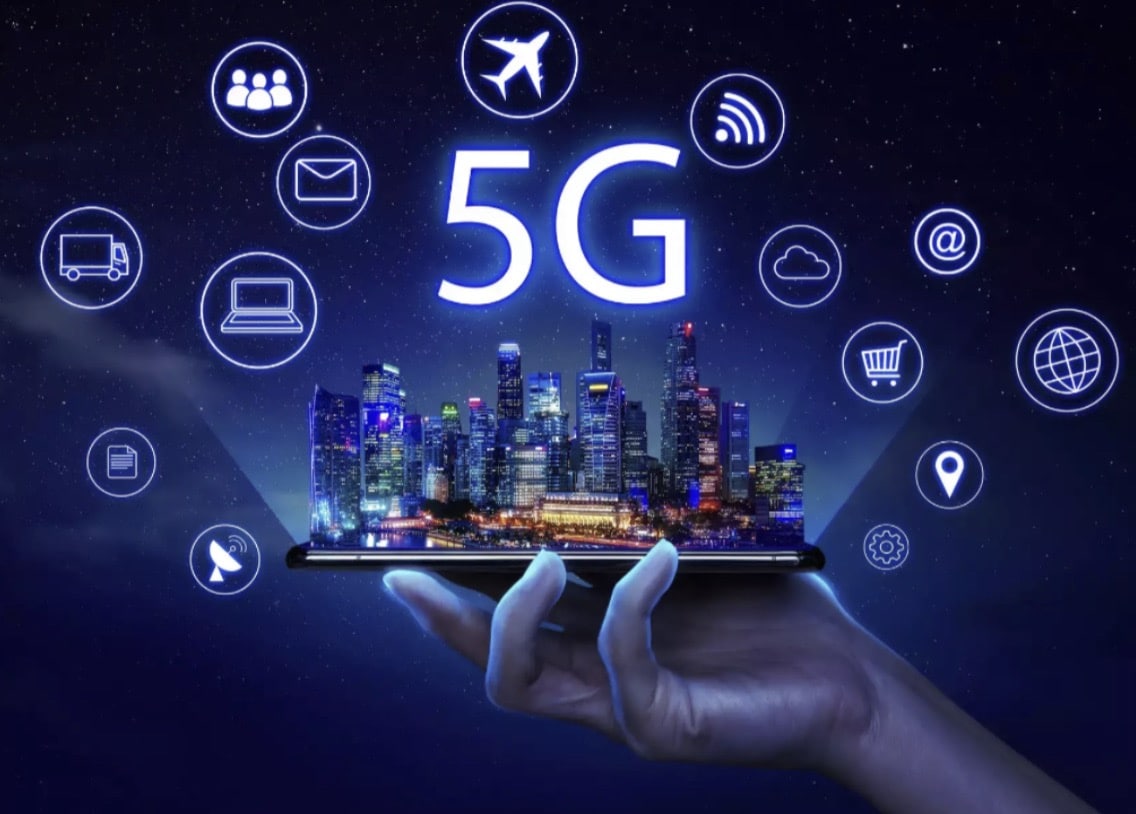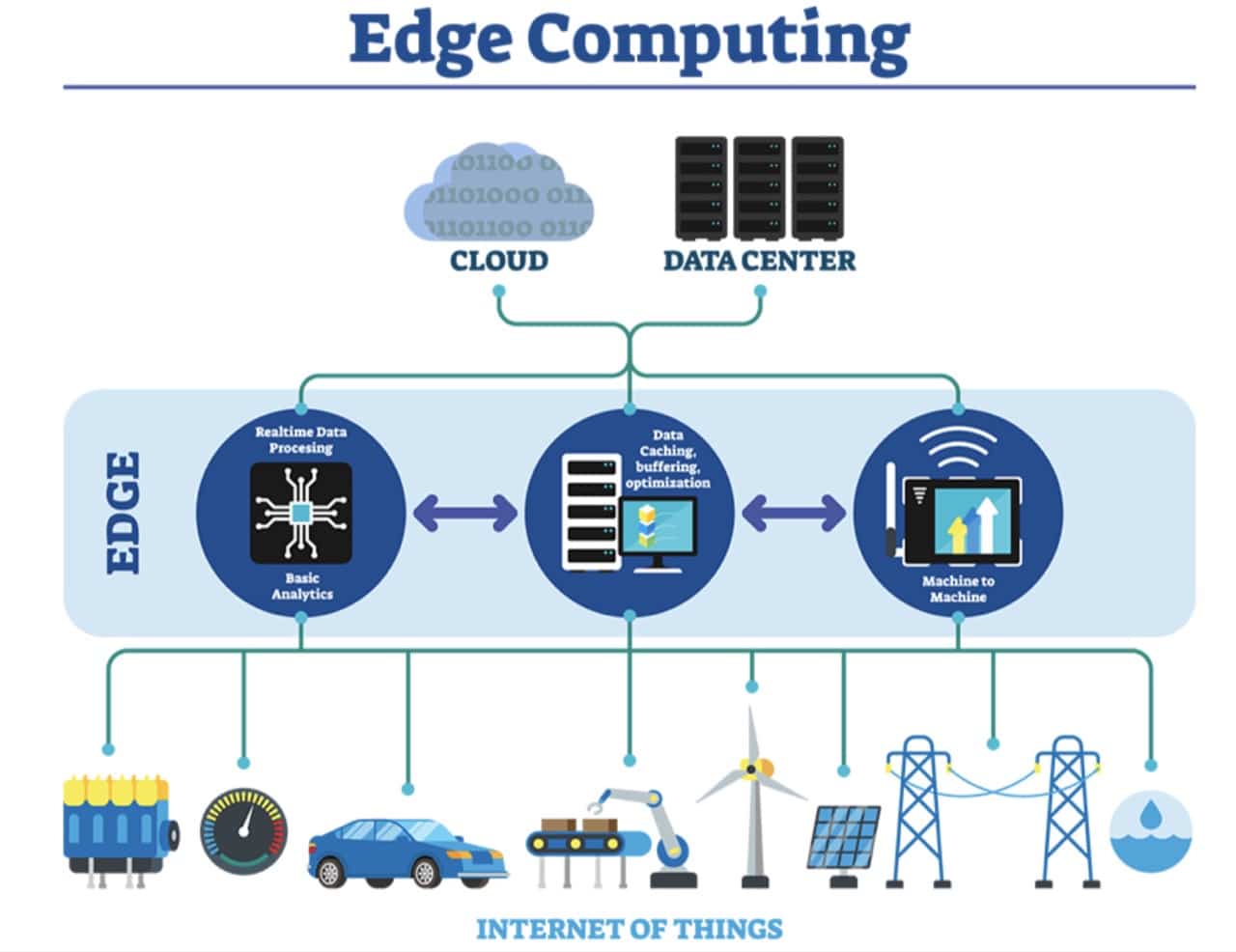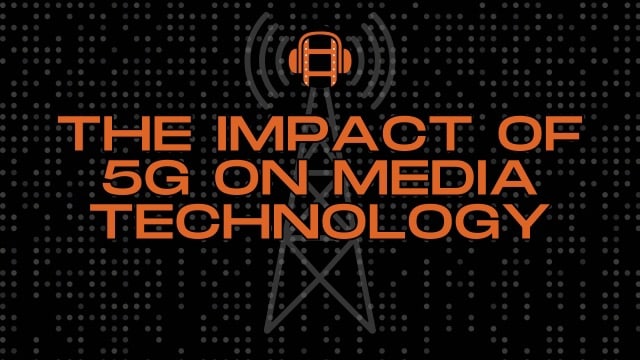The rollout of 5th generation networks, or 5G, has caused a seismic shift in the world of media technology since becoming widely available to the public in the early 2020’s. Thinking back, 3G brought in the world of smartphones, which took the internet mobile. 4G ushered in the beginning of widespread mobile video. The enhanced, fifth generation networks have enabled users with faster streaming, new interactive experiences, including a revolution in mobile gaming, content creation, and accessibility by connecting ALL our internet connected devices more seamlessly.

The capabilities of 5G networks are taking us far beyond what was possible with previous generations of network technology… So how have these developments reshaped the digital landscape for users, creators, and business?
Speed and Connectivity
Compared to its predecessors, 5G offers significantly higher data transfer speeds and lower latency, which translates to smoother and faster streaming of high-quality video content. Note the rise over the last decade in casual video streaming and social media services like Vine, TikTok, and Reels. Users can now enjoy 4K and even 8K resolution streaming with minimal buffering and virtually no lag with many providers. Creators also benefit from the ability to deliver live or recorded content in its highest quality, providing a superior viewer experience to the ever-growing online audience.
Besides content creation and social media, streaming platforms like Netflix, Amazon Prime Video, and Disney+ are increasingly benefiting from 5G technology. The faster speeds allow wildly popular streaming services to provide users with an enhanced streaming experience from just about anywhere. In a generation where parents are putting their kid’s favorite show on the iPad for car rides, and in a time when adults want to stream their favorite binge-worthy show while waiting in line for a haircut, the rollout of 5G speeds allows the general population to utilize our limited down-time better.
Augmented and Virtual Reality
A not so distant reality of 5G is its potential to bring augmented reality (AR) and virtual reality (VR) into the mainstream. Companies like Meta are looking forward to developing completely immersive virtual realities with the Metaverse; “realities” that will be completely untethered from the physical reality in which we live. We’re already seeing 360° capable posts on Facebook feeds, where we can move around and “see” a space immersively, at least compared to a slideshow of photos or a video walkthrough.
Users will likely soon be able to seamlessly engage with immersive AR and VR experiences on the go; from interactive educational content to virtual tours of real estate properties, to emulating travel without leaving the comfort of our homes. Not to mention the potential benefits of this technology for gamers, allowing for a more immersive and responsive mobile gaming experience, paving the way for a new era of gaming capabilities.
Mobile Gaming Revolution

5G is also the catalyst for a mobile gaming revolution, allowing gamers to play on-the-go with previously unseen connectivity and speed. Of course we’ve had mobile games for almost as long as we’ve had mobile phones, but we’re not talking about games like Candy Crush or Snake here. With the combination of high-speed internet, low latency, and edge computing, mobile gamers can now enjoy console-quality and PC-quality games on their smartphones or tablets. Many online games, previously limited to consoles or PC setups, now have full-function mobile versions, like Fortnite, Runescape, and League of Legends to name a few.
Cloud gaming services, like Steam, Xbox Live, and NVIDIA GeForce Now, can deliver a vast library of games to mobile devices as well, allowing users to play AAA titles without another piece of high-end hardware. Making games more accessible and mobile has only benefited the gaming industry and enthusiastic gamers alike.
With 5G readily available, game developers are seeing a shift in what platforms games must be optimized for, and mobile game app development is becoming a stand out industry trend.
MediaTech Institute’s mobile app development program follows these trends closely to ensure our graduates are ready to jump into the demanding world of modern, 5G compatible app development.
Edge Computing
5G networks rely on edge computing, which brings processing power closer to the user and all their internet connected devices.
As explained by Accenture, “Edge is about processing data closer to where it’s being generated, enabling processing at greater speeds and volumes, leading to greater action-led results in real time.”
In contrast, data has traditionally been sent to a centralized, on-site data center. Edge computing is a game-changer for content creators, especially in gaming. Complex calculations and rendering can now be offloaded to nearby edge servers, enhancing the performance of mobile games and reducing the burden on users’ devices.
Edge computing is also closely tied to the growing “Internet of Things”, many internet capable devices like bluetooth speakers, smart watches, and smart appliances already utilizing edge computing.

IoT Integration
The Internet of Things (IoT) will also greatly benefit from 5G technology. 5G is a major contributor to the growth of the Internet of Things, “With more than 7 billion connected IoT devices today (prior to 2020), experts are expecting this number to grow to 10 billion by 2020 and 22 billion by 2025.” The network’s ability to handle a massive number of connected devices with low latency will pave the way for smart homes, smart cities, and various IoT applications, allowing for more items to connect to the internet, send/process data about the item’s usage, and connect with other nearby IoT items efficiently. 5G being capable of handling this interconnected ecosystem will further revolutionize the way media technology integrates with our day to day lives.
MTI and our mobile app development program stays on top of current technology, trends, and history of wireless networks to curate the best program for interested students. Our industry experienced faculty makes sure our students leave ready to be hired and find success in an industry where educated, knowledgeable, and capable professionals are highly sought after.
The rollout of 5G networks is transforming the landscape of media technology, offering users and creators lightning-fast streaming, growing immersive AR and VR experiences, a revolution in mobile gaming, and more. These capabilities far surpass the limitations of previous network generations and open up new avenues for even more connectivity in our day to day lives. As 5G continues to expand its reach, it will undoubtedly have a profound impact on how we consume and create media, redefining our digital experiences in the process; making it an important technology to follow in the coming years.
Take a tour
Are you ready to turn your PASSION into a PROFESSION? Daily tours are available from 10am-5pm and we welcome walk-ins. Each tour will last approximately 45 minutes.
If you’d like to book a tour in advance, you can book by calling the campus directly or by using the scheduling buttons to book online and choose a time that works best for you.

